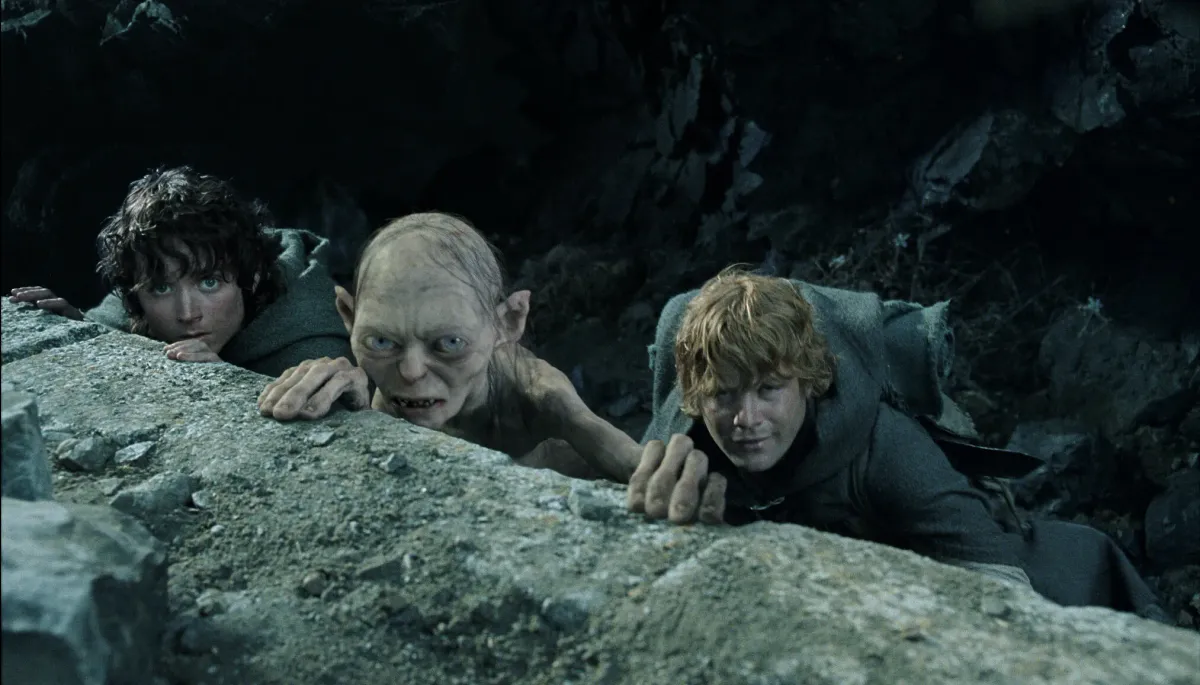Tom Bom, Jolly Tom, Tom Bombadillo!

The other day I made what I thought was a pretty esoteric joke about Tom Bombadil in passing (in relation to the humorous cute title of "Apple Fellow") and now I'm convinced that I both have the power of foresight and that Bombadilo is not nearly as random as I might have thought! Take, for example, the 3,000+ word piece that Anthony Breznican just wrote on the character for Vanity Fair.
First, the big news:
The Rings of Power, the Amazon Prime Video series based on Tolkien’s ancient history of his fantasy realm, will break that tradition of exclusion and finally feature Tom Bombadil—along with his jolly songs and his flamboyant wardrobe—when its second season begins August 29. Bombadil was described in Tolkien’s books as “older than the old,” a benevolent entity who began life around the time all life began, so his existence in this earlier era, thousands of years before the events of The Lord of the Rings, fits within the canon established by the author. In a 1937 letter to his publisher, mulling a possible sequel to The Hobbit, Tolkien described Bombadil as “the spirit of the (vanishing) Oxford and Berkshire countryside.” The author bristled at the notion that he wrote in allegory, but it’s clear he saw Bombadil as nature personified—right up to the character’s ambivalence about interfering in the larger world around him. That left showrunners J.D. Payne and Patrick McKay to figure out exactly how he might turn up in their show—and why.
“There’s a reason why he hasn’t been in prior adaptations, because in some ways he’s sort of an anti-dramatic character,” Payne tells Vanity Fair for this exclusive first look. “He’s not a character who has a particularly strong agenda. He observes drama, but largely doesn’t participate in it. In The Fellowship of the Ring, the characters kind of just go there and hang out for a while, and Tom drops some knowledge on them.” Adds McKay: “Knowledge that’s not particularly relevant to anything that they’re doing or about to do.”
Breznican then proceed to dig pretty deep into the history of the character:
Tolkien himself was hazy about the character’s purpose, and said he kept Bombadil in the story even though he didn’t have a clear purpose plotwise. “Tom Bombadil is not an important person—to the narrative,” Tolkien wrote in a 1954 letter to his proofreader for The Lord of the Rings. “I suppose he has some importance as a ‘comment.’ I mean, I do not really write like that.… He represents something that I feel important, though I would not be prepared to analyze the feeling precisely.”
One reader of the books suggested that Tom Bombadil was a stand-in for God himself, prompting Tolkien to reply in another 1954 letter: “I really do think you are being too serious, besides missing the point.” Above all, Tolkien was determined not to overthink Old Tom.
Sort of fascinating that Tolkein who famously pushed back against any talk of allegory – "the eagles are coming!" nothing to see here, folks – basically acknowledged that Bombadil was just that, even if by accident.
Anyway, hard to fault Rory Kinnear, the actor will will portray Old Tom, as knowing nothing about him, when offered the role. Peter Jackson famously almost included him but then didn't in his Lord of the Rings trilogy. And he didn't even make the cut in the animated version way back when. But, in a bit of good timing:
Absence has only made the heart of the Lord of the Rings fandom grow fonder for Old Tom. In addition to his prominent role in the new season of The Rings of Power, HarperCollins is publishing a new edition of Tolkien’s 1962 book The Adventures of Tom Bombadil, featuring his poems about the ethereal figure—some of which date back to long before his epic trilogy. The book, set to hit shelves August 20, is aimed at the enduring fascination Tolkien readers have for this enigmatic fantasy figure. Even Tolkien himself was transfixed.
“He has his origins in the name of a wooden doll that lived in the Tolkien family, and like many of the toys owned by the children, such as the teddy bears who appeared in Mr. Bliss, or the metal dog that inspired the hero of Roverandom, Tom Bombadil was drawn into Tolkien’s invented world,” Chris Smith, the publishing director for the company’s Tolkien titles, tells Vanity Fair. “His first known appearance was in the 1920s, in a story entitled ‘Tom Bombadil,’ and even in this fragment—which is included in the new edition of The Adventures of Tom Bombadil—he is described as one of ‘the oldest inhabitants in the kingdom,’ suggesting that from the outset Tolkien viewed Tom as primordial. Later, in the early 1930s, Tolkien put him into a poem.”
I recall reading The Fellowship of the Ring and having absolutely no idea what was going on when Bombadil appears. But I was intrigued enough by the vagueness and weirdness to still think about Tom all these years later. And now many more people will!
Anyway, time for a song:


